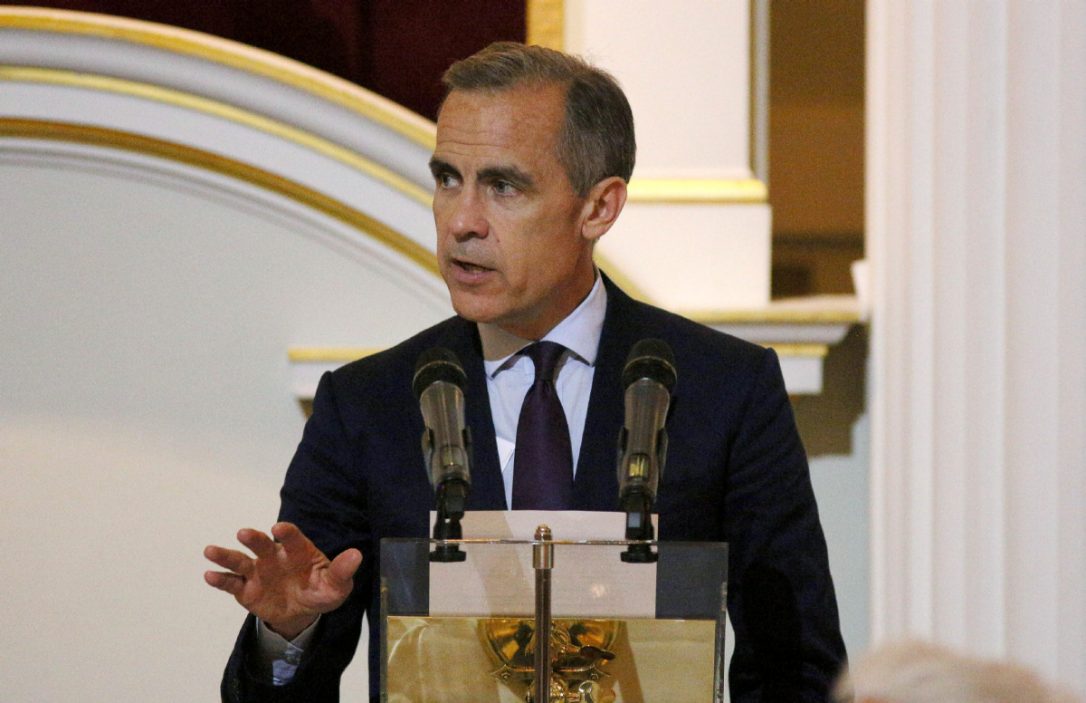It’s a Good Year to Visit Britain: Mayers

On day four of the global reaction to Britain’s decision to leave the European Union, the pound fell some more, as did world markets and our dollar.
Toronto’s main index and New York’s Dow Jones were both off 1.8 per cent in early trading, but both were trimming losses at midday. Another half a cent was shaved off the dollar.
The currency and market movements will probably moderate as the shock will wear off. But the damage has been done.
The reaction is turning on sentiment now that the news is out; the surprise that Britons voted Thursday 52 to 48 per cent to leave the European Union.
Like pulling on a loose thread in a sweater, the national fabric has been unravelling. British Prime Minister David Cameron will resign in October. Opposition Labor leader Jeremy Corbyn has seen half of the MPs quit his shadow cabinet. Many want his head for mounting a poor campaign to keep Britain in the EU.
European leaders want a quick divorce, but Cameron says nothing will happen until there’s a new PM.
Scotland, in a sign of the times, wants both extremes: One faction says the leave vote isn’t binding, it’s just a referendum. The other says they want another vote on Scottish independence so they can leave the United Kingdom.
A Reuters article laid out 10 ways it could play out. All actually seem plausible.
Article Continued Below
You might be interested in
EU leaders plot future without Britain, demand answers from Cameron
Brexit fallout gives Canada a peek at what could have happened in 1995: Hébert
Ikea recalls 29 million dressers after 6 children killed
Here are some the ways this affects us:
Visit the Queen: The silver lining. This will be the cheapest summer in a long while to visit Britain. The pound is at a quarter century low. Quick currency swings tend to boost tourism — as ours has benefitted from a weaker exchange rate against the U.S. dollar.
The Bank of Canada’s consumer rate for British pounds Monday was 10 per cent better than a week ago. The rate quoted was $1.76 to £1. A week ago it was $1.96 to one.
More expensive U.S. travel: The same force driving us higher against the pound is pushing us lower against the U.S. dollar.
So our dollar fell 1.5 cents (U.S.) on Friday and fell another half a cent to 76.59 cents (U.S.) at the open Monday. That’s going to be most noticeable in the grocery store where the prices of fresh foods react quickly.
Pension fund losses: Most of us do not own British investments directly, large pension funds do. And not just stocks and bonds. They own airports, student housing, utilities and other things where the sales are in the local currency.
The Canada Pension Plans has about 7.5 per cent of assets, worth about $20 billion, invested in the U.K. They’re worth about $2 billion less this Monday than last.
But with a horizon that extends decades, the events have limited immediate impact.
Interest rate risk: If over the coming months growth slows in the U.K. and Europe, look for another round of interest rate cuts.
The economies will slow because of how people feel. Businesses may be worried and put off expansions or delay investments. Consumers may think twice about spending. Banks may trim the list of who they lend to — a credit squeeze.
Canadian rates may not fall, but even maintaining them at current levels is feeding the real estate bonfire in the GTA. If London condos are less appealing to foreign investors today, those in Toronto and Vancouver are even more attractive than a week ago.
Quebec referendum retrospective:
The vote aftermath is a bird’s-eye view of the mess Canada narrowly avoided 21 years ago.
In the Quebec referendum on October 30, 1995 the Remain, or Yes-to-Canada side, squeaked out a 50.5 to 49.5 victory over the No-to-Canada side.
We saw the same divisive rhetoric, reckless promises and panic. The difference may be that in the U.K., “Leave” voters believed they could go back to some mythical Britain of 40 years ago and be better for it.
In Quebec’s case, life before Canada was 125 years in the past. Quebecers had to have faith that an unknown post-separation world would offer a better life than the one within Canada.
Two decades on the Canadian federation seems stronger than it was — witness the withering of the Parti Québécois and federal Bloc Québécois as political forces. Quebec’s willingness to participate in Confederation has replaced its confrontational rejection of years past.
Things will likely unfold for Britain in ways that are not obvious and the future may not be bad, just different.
But with apologies to the Fab Four, expect a long and grinding road.
More columns by Adam MayersEND
Adam Mayers writes about investing and personal finance on Tuesdays and Thursdays. Have a question? Reach him at amayers@thestar.ca .








